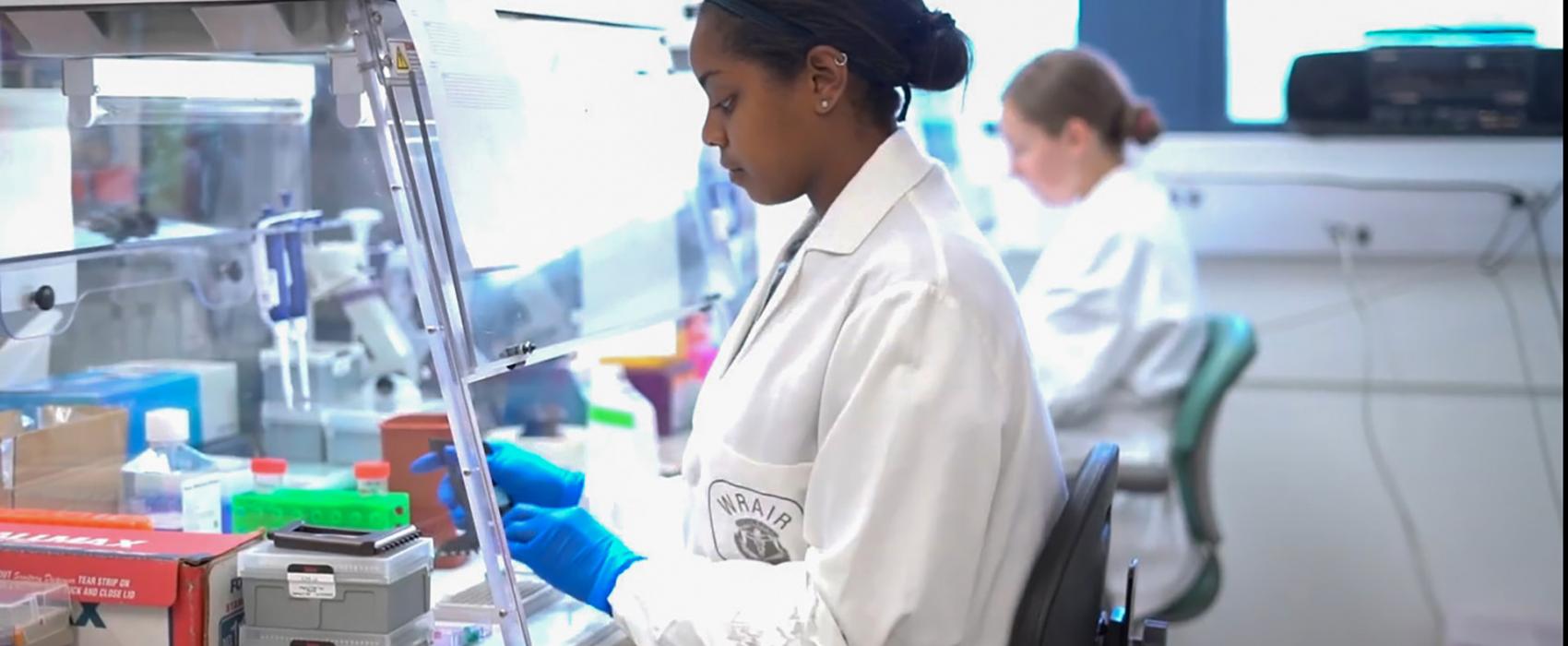MHRP is at the forefront of the battle against HIV to protect U.S. troops from infection and reduce global impact of the disease.
Since its inception in 1986, MHRP at the Walter Reed Army Institute of Research (WRAIR) has emerged as a world leader in HIV vaccine research and development. In conducting the landmark RV144 Thai trial, the first, and so far only, HIV vaccine study to show modest efficacy in preventing HIV in humans, MHRP cemented its reputation in the field and formed collaborations with some of the top research institutions in the world.
With an international network of research sites throughout Africa and Asia, the program’s growth and success has been achieved through a combination of strong science, careful development of research sites and partnerships with key research institutions in the U.S. and abroad. MHRP is a partnership with a nonprofit research organization, the Henry M. Jackson Foundation for the Advancement of Military Medicine, Inc. (HJF). MHRP also collaborates closely with the U.S. National Institute of Allergy and Infectious Diseases and its Division of AIDS, which helps fund MHRP vaccine and cure research through an interagency agreement.
Expansion into HIV threat assessment, diagnostics and epidemiology reinforce an enduring commitment to tackling the threat that HIV poses to the U.S. Service Members, national security and global health. More recently, the program has made pioneering discoveries in acute infection and functional cure research, and MHRP is also pursuing injectable countermeasures to prevent HIV transmission in the context of high-risk blood transfusions.
MHRP implements prevention and treatment programs alongside local partners in each of the communities in which it conducts research with support from the U.S. President's Emergency Plan for AIDS Relief (PEPFAR). Integration of PEPFAR services with MHRP's research mission is critical to building strong and trusting relationships with host communities and provides an ethical framework to conduct HIV clinical research.
Centered at WRAIR and part of the U.S. Army Medical Research and Development Command (USAMRDC), MHRP is committed to developing and advancing effective solutions—such as vaccines, monoclonal antibodies, therapeutics and diagnostics—to counter HIV and other related infections.
MHRP works to achieve its mission by fostering world-class scientists, pursuing meaningful partnerships and forging innovative research pathways. To view the program's strategic plan, please download the plan on the left sidebar.
MHRP's work with HJF is supported by the Assistant Secretary of Defense for Health Affairs endorsed by the Department of Defense, through the Walter Reed Army Institute of Research (WRAIR) - under Award No. HT9425-24-3-0004.
